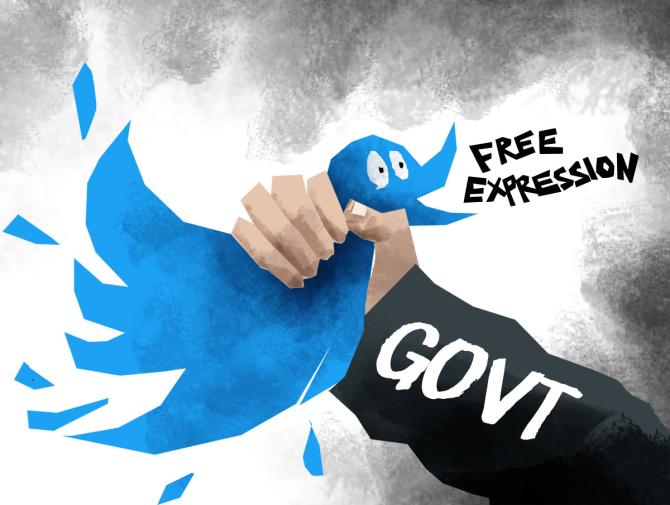Right to comment on content on social media or TV channels is a facet of free speech under the Constitution and it will be in the interest of the public that every broadcaster has the right of criticism and review even in relation to programmes created by others, the Delhi high court said on Friday.

Justice Asha Menon noted that dissemination of a spectrum of information would result in a better informed society and the right to comment should be subject to reasonable restrictions under the Constitution in relation to threat to national security and law and order and defamation.
”Of course, the right to privacy and reputation cannot be violated in the garb of freedom to comment. Other than that, the ability to express an opinion must be freely available for all who hold an opinion,” the court said.
The court was passing an order on a lawsuit by a media house against online news portal Newslaundry for allegedly ridiculing and defaming its news broadcast and anchors through its content.
The court on Friday refused to grant any interim relief to the plaintiff media house and dismissed its application for interim injunction.
”This court would accept that the right to comment on content created on social-media or on TV channels has also to be recognised as a facet of the right to free speech and expression under Article 19(1)(a). In fact, the availability of a multitude of reporting styles, prioritization and presentation of events that occur daily, would always be in public interest, since broadcast is intended to communicate to the public,” the court stated.
”Varied presentations and discussions would result in the availability of several shades of opinion before the public, which can then come to its own conclusion. It would definitely be in the interest of the public that every broadcaster has the right of fair comment on current events and of criticism and review, including of the programmes created by others,” it said,
The court said while it cannot accept ”self-appointment” by defendants as ”regulator” of the content of media as there already existed a mechanism for it, ”their right to comment and criticise cannot be restricted”.
The court said the ”creative genre” of satire ”which is included within the ambit of freedom of speech” -- must be encouraged and protected, and since the defendants also claim that their programme is satire, a trial would be required to examine whether the content in question is satirical or malicious.
The court said an interim injunction has been sought at a time when the rival claims are yet to be determined for their merit.
”While freedom of expression would include the art of satire, it must be evident that what was being presented is indeed satire. It must be self-evident and by its very character can never be a case of copyright infringement or defamation or even disparagement. Satire cannot be explained or else it would lose its flavour,” the court said.
”Satire allows the satirist to criticise in the harshest of terms and critique actions of all, particularly of those in positions of power and/or authority and leadership. The intention of the satirist is to simultaneously highlight an action and its negative fallout, so that rectificatory action could be taken. It is never intended to disparage or harm reputation and thus is completely devoid of malice,” the court added.
The court noted that satirists have been greatly respected in our culture and there are several art forms that allowed such criticism of even the rulers in the heyday of monarchy.
”Examples that come to mind are 'Ottamthullal' and the 'Chakiyaarkoothu', both in Kerala. Sharp use of language conveys the message intended by the artists, but in a cultured and nuanced manner. Such creative genre must, without doubt, be encouraged and protected,” it said.
The court said while some of the contents, as listed by the plaintiff, were ”ex-facie defamatory/disparaging”, balance of convenience tilted in favour of the defendants.
”In the event they are able to establish justification and fair comment and fair dealing, the plaintiff would fail, both in respect of their claim against copyright infringement/broadcast right violation as also defamation/disparagement,” it said.
”The existence of a few videos with use of words listed in the written submissions of the plaintiff or articles and posts which have been in circulation for a few years now, do not, in the opinion of this court, constitute exceptional circumstances for the issuance of directions in the nature of mandatory injunction,” the court noted.











 © 2025
© 2025